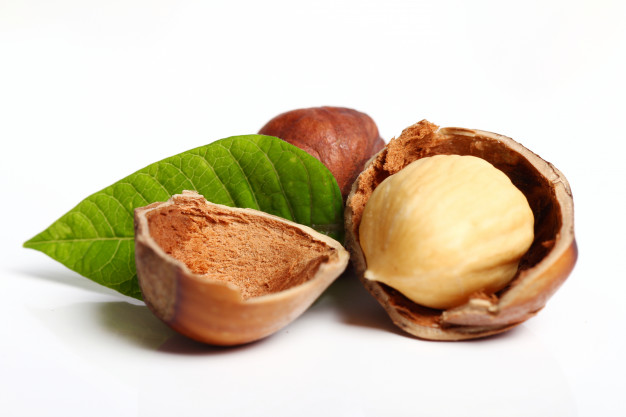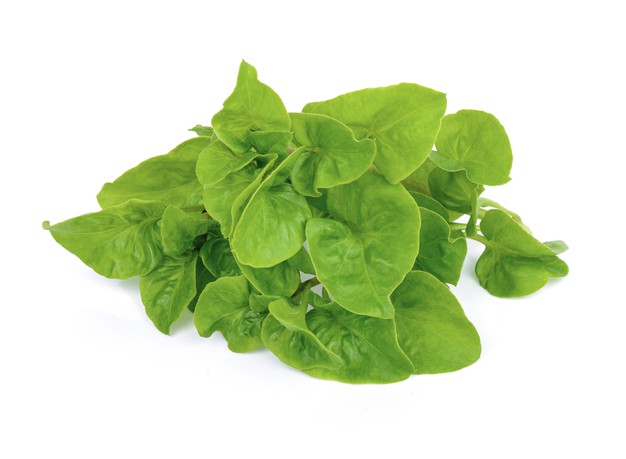Hazelnut is a nutrient dense nut with potential health benefits. It has been traditionally used for its numerous therapeutic advantages.
Nutritional profile
- It contains fewer amounts of carbohydrate and desirable amount of fibre
- It also contains proteins
- It contains significant amount of fat but the fat present in hazelnut is considered as healthy fat as it contains adequate amount of MUFA and PUFA. It also contains too some extent of saturated fat but totally free from cholesterol
- It contains numerous micronutrients, which include Vitamin A, Vitamin E, Vitamin C, Vitamin B1, B2, B3, B6, calcium, magnesium and iron
Biological property
Antioxidant property
- It is packed with antioxidants
- Its consumption is very effective for reducing oxidative stress
- It helps to decrease the concentration of free radicals within body and protects the body from their harmful consequences
- It also helps to prevent lipid peroxidation thus spares the lipid from oxidation and helps to sustain their functionality in body
- It helps to protect every cell of body from oxidative damages hence helps to sustain their functionality and decreases the risk of developing chronic diseases
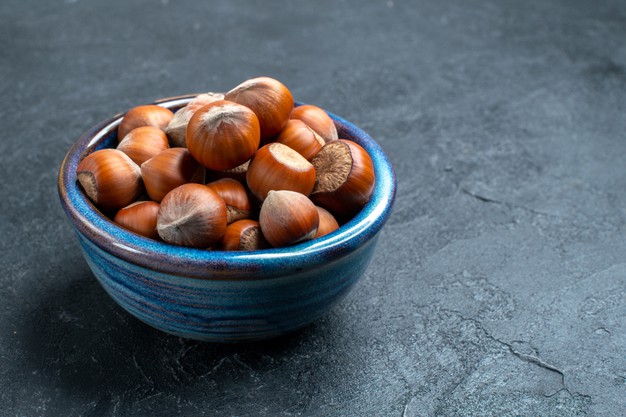

Anti-inflammatory property
- It helps to protect the body from various inflammatory damages and decreases the susceptibility of developing chronic inflammatory diseases
- It is associated with delaying the onset of inflammatory events in body
- It has seen that it is related with reducing the concentration of inflammatory markers in body (especially C-reactive protein) that help to prevent inflammation
- It helps to reduce swelling and pain too
Anti-carcinogenic property
- Its micronutrients and antioxidant components are considered as the main components that exert potent anti-carcinogenic activities
- Proanthocyanidins is another important compound present in hazelnut also exerts anti-carcinogenic activity
- It helps to suppress the growth of malignant cells and tumor cells
- It helps to stimulate the regulation of cellular proliferation and apoptosis that helps to kill cancerous cells
- Its Vitamin E content also helps to prevent cellular damages thus decreases the risk of developing cancers
Health benefits
Role on digestive health
- It contains significant amount of fibre, which plays vital role in enhancing bowel movement hence prevents constipation
- It helps to improve colonic motility, which is associated with cleaning up the bowel and also promotes colonic health
- It helps to protect the gastrointestinal tract from the oxidative and inflammatory damages thus decreases the risk of developing gastrointestinal disorders

Role on reproductive system
- It plays crucial role in promoting reproductive functions especially male reproductive functions
- It helps to improve sperm quality as well as sperm count and thus facilitates fertilization
Role on regulating cholesterol level
- Hazelnut has strong lipid lowering activities
- It has seen that consumption of hazelnut is related with reducing the concentration of LDL and triglyceride in body about 7%
- This reduction in lipid content significantly decreases the risk of developing hypercholesterolemia, arthrosclerosis and coronary artery disease
- It also helps to increase the level of HDL in blood, which helps to decrease the susceptibility of metabolic syndrome
- Individual with elevated lipid profile should consume hazelnut for obtaining a healthy lipid status
Role on muscle
- Being a good source of protein it plays vital role in the growth and development of muscles
- Its magnesium content is also related with strengthening the muscle
- It helps in muscle contraction as it contributes adequate amount of calcium
- It helps to reduce overstress on muscle that helps to ease muscular tension
- It is also related with preventing muscle fatigue, cramp, spasm and soreness
- It has seen that individuals who consume hazel nut significantly increase their lean muscle mass

Role on nervous system
- Its consumption is closely related with promoting the function of nervous system as it contains desirable amount of Vitamin B6
- This vitamin of hazelnut plays significant role in the synthesis of myelin sheath that helps to improve the swiftness and efficiency of electrical impulses
- It is also associated with stimulating the release of various neurotransmitters such as melatonin, epinephrine and serotonin, which help to improve the transduction of nerve impulses throughout the body
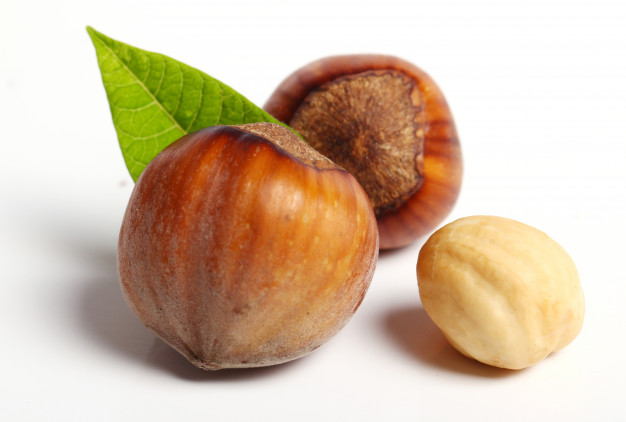
Role on skeletal health
- Its calcium, magnesium and manganese contents are accountable for strengthening the skeletal system as they help in healthy bone formation
- It is also associated with bone mineralization that helps to enhance bone mass
- Its consumption is very effective for reducing the risk of developing bone disorders and it significantly reduces the prevalence of osteoporosis especially among menopausal women
Role on skin
- Hazelnut is considered as a healthy choice for skin care. It has seen that its consumption is very effective for promoting skin health
- Its Vitamin E and fat contents are responsible for moisturizing the skin and also help to keep the skin hydrated
- It helps to make the skin soft and smooth
- Application of hazelnut oil on skin is very much helpful for guarding the skin from the harmful effects of UV radiation
- Its antioxidant activities are accountable for protecting the skin from oxidative damages and also help to prevent ageing
- Its antioxidant components are also responsible for resynthesizing new skin cells and thus provide the skin a healthy and fresh look
- It helps to eliminate the dead cells as well
- It is very effective for treating acne and dry skin

Role on hair
- It plays significant role in improving hair health
- It has seen that application of hazelnut oil (oil extracted from hazelnut) to scalp followed by massaging for few minutes significantly increases the strength of hair from root
- It is very helpful for preventing various hair problems like dry hair, hair breakage, alopecia etc. Application of hazelnut oil along with beaten egg to the scalp followed by lukewarm water wash significantly decreases these above stated complications
- It is also very effective for inhibiting split ends
Therapeutic advantages
- It is extensively used as an imperative therapeutic agent for preventing cardio vascular diseases
- It helps to prevent hypertension as well
- Its unsaturated fatty acid contents are accountable for providing cardio protective effects and its consumption significantly reduces the prevalence of heart attacks and strokes
- It also helps to decrease blood sugar concentration by increasing insulin sensitivity. It has also seen that its oleic acid component is very effective for reducing the level of fasting blood sugar. Diabetic patient should include hazelnut in their diet for decreasing their glycemic load
- Its fibre content helps in weight management and individual who consume hazelnut have lesser risk of gaining weight
- It plays significant role in enhancing the immunological responses of body and helps to strengthen body’s defense mechanism that ultimately helps to protect the body from developing infectious diseases

General consideration of using hazelnuts
- It can be used as healthy snacks
- It can be added to salad before consumption
- Roasted or crushed hazelnut can be used for preparing pasta sauce
- Roasted and powered hazelnut can be extensively used for preparing several dishes
- It may develop allergic reaction in some people so people who have nut allergy should avoid its consumption
- Its overconsumption is not desirable as it may cause obesity
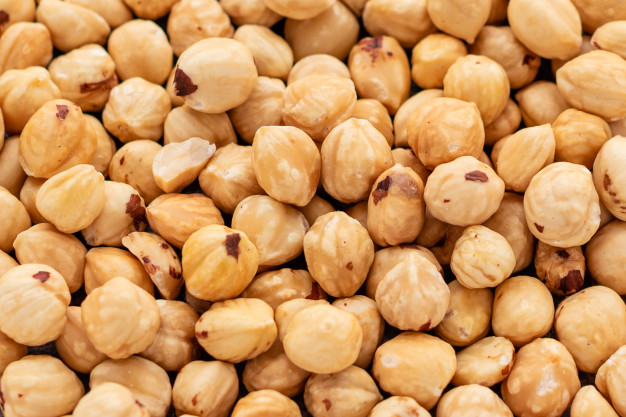
Source:
Del Rio, D., Calani, L., Dall’Asta, M. and Brighenti, F., 2011. Polyphenolic composition of hazelnut skin. Journal of agricultural and food chemistry, 59(18), pp.9935-9941.
Deon, V., Del Bo, C., Guaraldi, F., Abello, F., Belviso, S., Porrini, M., Riso, P. and Guardamagna, O., 2018. Effect of hazelnut on serum lipid profile and fatty acid composition of erythrocyte phospholipids in children and adolescents with primary hyperlipidemia: A randomized controlled trial. Clinical nutrition, 37(4), pp.1193-1201.
Esposito, T., Sansone, F., Franceschelli, S., Del Gaudio, P., Picerno, P., Aquino, R.P. and Mencherini, T., 2017. Hazelnut (Corylus avellana L.) shells extract: phenolic composition, antioxidant effect and cytotoxic activity on human cancer cell lines. International Journal of Molecular Sciences, 18(2), p.392.
Guaraldi, F., Deon, V., Del Bo, C., Vendrame, S., Porrini, M., Riso, P. and Guardamagna, O., 2018. Effect of short-term hazelnut consumption on DNA damage and oxidized LDL in children and adolescents with primary hyperlipidemia: A randomized controlled trial. The Journal of nutritional biochemistry, 57, pp.206-211.
Guiné, R. and Correia, P., 2020. Hazelnut: A Valuable Resource. International Journal of Food Engineering, 6(2), pp.67-72.
Pelvan, E., Olgun, E.Ö., Karadağ, A. and Alasalvar, C., 2018. Phenolic profiles and antioxidant activity of Turkish Tombul hazelnut samples (natural, roasted, and roasted hazelnut skin). Food chemistry, 244, pp.102-108.
Wani, I.A., Ayoub, A., Bhat, N.A., Dar, A.H. and Gull, A., 2020. Hazelnut. In Antioxidants in Vegetables and Nuts-Properties and Health Benefits (pp. 559-572). Springer, Singapore.
